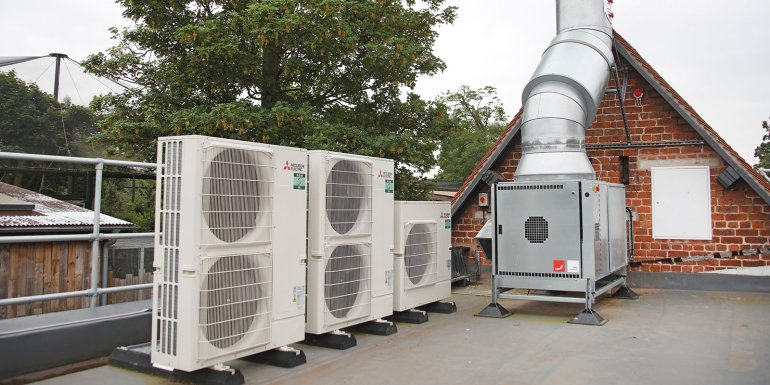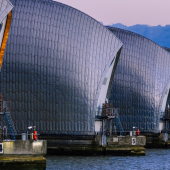Chester Zoo’s approach to keeping their animals warm

Chester Zoo is partnering with Mitsubishi Electric to decarbonise heating across the estate, conserving both energy and the animals.
Chester Zoo is a leading conservation and education charity that’s committed to preventing extinction and dedicated to raising awareness of conservation and environmental challenges. The zoo is aiming to be net zero in its scope 1 and 2 emissions by 2030 and net zero in its scope 3 emissions by 2050 at the latest. As part of this, it is actively working to reduce its reliance on fossil fuels. Each building has very different requirements based on its use, including the animals and species cared for in it.
With this in mind, it has announced a strategic partnership with heat pump manufacturer Mitsubishi Electric to decarbonise heating across its not-for-profit conservation zoo. The partnership will see Mitsubishi Electric’s experts work with the zoo’s facilities and design teams to keep the animals warm. It will also provide heating, cooling and ventilation equipment in other buildings across the 128-acre site while reducing the charity’s carbon emissions.
Jennifer Kelly, Head of Sustainability at Chester Zoo, says: “We’re facing a global biodiversity and climate crisis. That’s why it’s important that, as a conservation charity that’s working to prevent the extinction of species worldwide, we lift our focus on sustainability to new heights.”

From butterflies to rhinos
The partnership was developed following two successful projects utilising Mitsubishi Electric equipment. The first involved air-source heat pumps, air conditioning and ventilation installed in the zoo’s new conference and events venue The Square. The second saw one of its rhino habitats, home to the critically endangered Eastern Black Rhinos, heated by six Ecodan air-source heat pumps manufactured in Scotland.
“We need to keep our indoor rhino habitat temperatures from 18-24°C, but their home has big open doors, allowing the animals free movement to their outdoor habitat, which can lead to significant heat loss. The air-source heat pump solution deployed shows the potential for heat pumps to be successful in challenging and unique environments,” says Kelly.
Ecodan brand ambassador, TV presenter and architect George Clarke, adds: “I’ve been talking for years about the power and versatility of heat pumps for different living environments. The air-source heat pumps deployed at Chester Zoo demonstrate what’s possible and show that if heat pumps can work in our rhino habitats, they can work in residential and wider settings too.”
Chris Newman, Net Zero Design Manager at Mitsubishi Electric, says: “We’re working with the zoo’s facilities teams to reduce carbon emissions and deliver energy efficient comfort across a diverse range of buildings with internal climates from African savannahs to South American rainforests, which shows beyond doubt that there is a renewable solution that can help all of us get to net zero.”
Chester Zoo was opened in 1931 and is one of the UK’s largest zoos. The 128-acre site in Chester is home to more than 37,000 animals and over 500 species. The heat pumps have already been installed in the zoo’s rhino enclosure and butterfly house, helping Chester Zoo on its mission to become the UK’s first zoo to reach net zero by 2031.
Find out more about the conservation work by visiting chesterzoo.org
For more on the sustainable solutions, visit les.mitsubishielectric.co.uk








